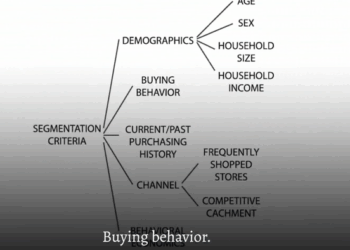
The first thing is learning to count.
On one level, politics is about principles and values. At another level, it is about math. The Democrats angry about the compromise that resulted in the reopening of the federal government are confused about which level they are operating on.
Congressional Democrats shut down the government in an attempt to extort Republicans into backing certain health care subsidies that were set to expire. Our constitutional system contains many chokepoints of different kinds—a feature, not a bug—and exploiting those is what you do, within reason, when the math is against you. Supermajority requirements empower legislative minorities, just as procedural mandates and the Bill of Rights protect minority interests outside of the legislative chamber. We do not follow strictly majoritarian conventions, nor should we: Majorities get things wrong—violently wrong, tragically wrong—all the time. That’s why the Founding Fathers so often used the word “democracy” in a monitory fashion.
But minority power is by nature largely obstructive in character. That may be one of the reasons Republicans always seem so much happier in the minority: Obstruction is right in their comfort zone. The Democratic Party traditionally has had a more activist character than the GOP and is less satisfied with obstruction. (This isn’t a hard-fast thing: Democrats at the national level have been known to take a viciously and dishonestly obstructive approach to Republican judicial nominations, while state-level Democrats, notably in Texas, have abused quorum rules and employed other procedural shenanigans to stymie Republican majorities.) The Democrats who thought that they could use the shutdown to strong-arm Republicans into conceding those Affordable Care Act subsidies calculated that Republicans would not endure an extended shutdown in order to prevent subsidies that would, after all, benefit a great many people in Republican districts. That was a miscalculation. Republicans are not much bothered by shutdowns, and they do not hear that much from their constituents—the ones they actually care about: Fox News hosts—screaming to end the shutdown.
Compromise and consensus are desirable not because they are nice but because they are a source of stability in policy and governance, qualities that our federal Leviathan needs desperately in these complicated times.
The Democrats who caved and went along with the Republicans to get the government back in business were following the math in an ancient and longstanding way: If you happen to be a minority faction in a minority party, the easiest way to exert influence is by making common cause on areas of common interest with the majority party, just as a minority faction in the majority party has convenient opportunities to advance by cooperating with the minority party. Back when there were liberal-leaning Northeastern Republicans and a Democratic majority in the House that appeared to be permanent (from 1931 to 1995, Republicans controlled the House for only two Congresses, and Democratic control was unbroken from 1955 to 1995), those Rockefeller Republicans exercised disproportionate power in American politics. Democratic leaders in Congress did not have to worry too much about defections from the party’s left wing when they could count on a few Republicans to cross over and fill the gap. That dynamic often had a moderating effect, though that need not always be the case.
The Democrats are the party of government workers and welfare programs, and the fact that a few Senate Democrats prioritized SNAP benefits and getting federal workers back on the job with back pay over the opportunity to lose a largely symbolic vote to Republicans on health insurance subsidies should not be very surprising. Democrats ought to have the courage of their convictions here, if only for reasons of partisan self-interest: If they are correct that the expiration of ACA subsidies will prove excruciating for American voters, then they should let the Republicans have their way on the issue and then make the consequent pain the centerpiece of their next campaign. That would be normal politics. The competing notion—that Democrats who cooperate with Republicans are by definition morally contaminated—is the politics of cooties, fit only for children and Alexandria Ocasio-Cortez and others of her ilk, as well as their opposite numbers in the Republican Party, where the politics of cooties is even more pronounced than it is among Democrats.
I would prefer a more assertive Congress and a Congress that acts in a more compromising and consensus-driven way—and I believe those two goals are complementary rather than rivalrous. Compromise and consensus are desirable not because they are nice but because they are a source of stability in policy and governance, qualities that our federal Leviathan needs desperately in these complicated times. The Democrats have not yet devolved into a full-fledged personality cult the way Republicans have with Donald Trump (Democrats moved some considerable distance in that direction during the Barack Obama years) but, unhappily, the Democrats are every inch the cultists that Republicans are when it comes to the presidency per se. The Constitution treats Congress as the supreme branch of our government, but both Democrats and Republicans treat it as the redheaded stepchild of political power, a mere consolation prize to be enjoyed while waiting for the next shot at the White House.
But the Democrats are the party that produced Sam Rayburn and Lyndon Johnson—they have some institutional memory of how legislative power works and what it is for. Come the day some smart political operator (of either party) gets interested in using congressional power in a more robust way, that politician, if he knows what Rayburn and Johnson knew, will be a force to be reckoned with. If that politician also happens to be free of the vices that undid Newt Gingrich as House speaker and is unencumbered by the petty fief-building impulse that led Nancy Pelosi to undermine (to further undermine) House procedure by centralizing power in his or her office, then there is a chance to make a real mark.
But it starts with learning how to count.
















